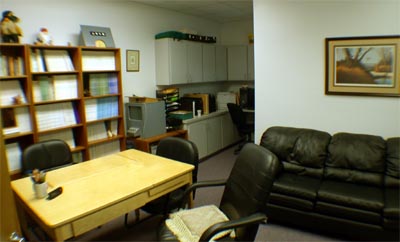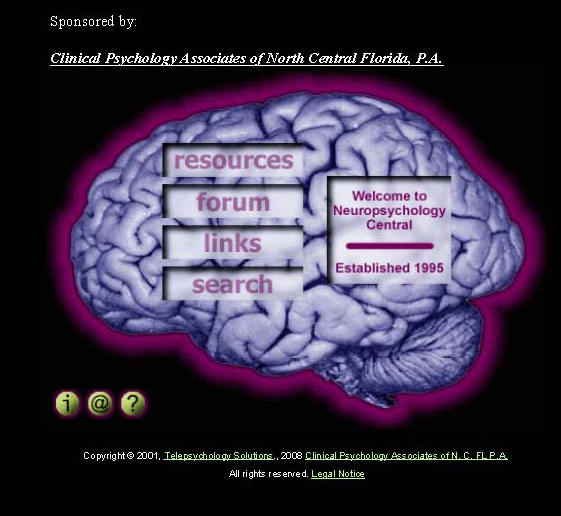| |
Pediatric Neuropsychology Services
2121 NW 40th Terr Ste B Gainesville, FL 32605
3620 NE 8th Place, Ste 4, Ocala, FL 34470 CPANCF.COM
 Pediatric Neuropsychology is the study and assessment of the brain-behavior relationships involving cognition, attention, memory, executive function, sensory and social perception, motor skills, language, visuospatial and constructional skills, abstract reasoning skills and behavior in children and adolescents. Pediatric neuropsychologists receive graduate level supervision, education, and training as well as years of internship and residency experience in pediatric neuropsychology, neurodevelopmental issues, developmental psychology, neuroscience, functional neuroanatomy, neuropathology, behavioral neurology, psychopathology, and in neuropsychological and psychological testing. They have training in and employ and in-depth interviews of neurodevelopmental history, behavior, medical and neurological factors as part of comprehensive assessments. The National Academy of Neuropsychology notes that pediatric neuropsychologists are licensed psychologists with training in both clinical psychology and neuropsychology.
While other professions may claim weekend certificates or "Board Certifications" with far less training, no other profession demands more education and training than the standards for pediatric neuropsychologists. Grey (2023) cautions consumers to beware of “one size fits all” evaluations and/or treatments claiming the ability to improve any/all learning/behavioral problems as the brain typically does not work/respond in such a simplistic manner.
There are many conditions that can affect cognitive ability and neurocognitive functions through their impact on developing brains of children and adolescents. Birth trauma including anoxia (loss of oxygen), intracranial hematomas, low birth weight, developing tumors, radiation, chemotherapy, fetal alcohol syndrome disorders (FASD), other prenatal exposures to drugs or toxins, and early nutritional or other deprivation or trauma can all produce neurocognitive, behavioral, emotional, and other difficulties which can lead to problems in adaptive functioning.
Pediatric neuropsychological assessments are also used for evaluation in providing information about the neurocognitive effects of hydrocephalus, genetic syndromes, neurofibromatosis, tuberous sclerosis, spina bifida, lead exposure, metabolic and neurodegenerative disorders, brain infections other childhood encephalopathies, and sometimes to further assess depression, anxiety, or behavioral disorders including those involving problems with initiation or impulse control.
Neuropsychologists often focus on diagnostics and processes contributing to abilities, memory, and achievement. Many children with same diagnostic “label” can present very differently, and have very different strengths and weaknesses. This occurs in a context of developmental changes in brain development, changing demands associated with each grade, more global biopsychosocial factors, and possibly psychological or brain trauma.
Pediatric neuropsychologists can help provide data which helps in understanding how problems with the brain may relate to school, home, and social problems, help identify neurological, neuropsychological or psychiatric problems, and help match expectations with the child or adolescent's unique neurocognitive profile. Preschool assessments can help in determining readiness for school, needs for early intervention, and provide early identification of potential learning disabilities, coordination disorder, or language impairments. This can often help in providing accommodations in school and in formulating IEP and 504 plans. Thorough assessments are also used to determine eligibility for testing accommodations for SAT, GRE, LSAT, MCAT, ACT tests and even accommodations for Medical Board and Bar exams.
Children at risk for neurocognitive and neurobehavioral difficulties can have multiple types of presentations over time. Some have current and chronic difficulties, some have current difficulties and have sustained improvements and resilience, some seem to do well initially but face significant difficulties later, and some do well despite challenges and have sustained success and resilience. Repeat pediatric neuropsychological evaluations are often used to monitor progress in rehabilitation, response to intervention, monitor recovery from concussions, traumatic brain injury, strokes, and other neurological conditions. In forensic neuropsychology cases, evaluations are often used to assist with determinations of permanency or to provide expert testimony about future adjustment or needs for future treatment or services.
Pediatric neuropsychological assessment goes far beyond just determining "normal functioning" for age. Their understanding of neurodevelopment and use of standardized psychometric procedures and statistical methods are often employed to determine if differences in attention, memory, or other skills differ from expectations based on age, education, and from expectations based on a child's more general actual or estimated intelligence. Pediatric neuropsychologists bring thei5 extensive training, expertise, and experience in further analysis is often conducted to determine if these differences are rare and how they related to overall patterns related to the brain and diagnostic formulations.
Grey (2023) identified several situations reflecting indications for formal pediatric neuropsychological assessment.:
- Atypical or severe psychological, behavioral or learning problems (comorbid conditions)
- Suspected brain dysfunction or injury
- History of central nervous system disorders, congenital or acquired.
- Complex medical history (prematurity, exposure)
- Concerns with loss of skills
- Diagnostic differentiation
- Increasing recognition of need to monitor children’s progress and response to interventions.
- Situations in which pediatric neuropsychological evaluations are considered as medical standards of care. These include, but are not limited to identifying, describing, and monitoring many neurodevelopmental and acquired disorders such as traumatic brain injury (TBI), epilepsy (0.6% of children aged 0 to 17, neoplasms, prematurity, cerebral palsy, etc.
In addition to the above, a number of medical and neurodevelopmental disorders have ongoing neurocognitive risks including cancer and brain tumors, chemotherapy and radiation, genetic or chromosomal disorders (i.e. NFI, FRX, TS21), Tourette’s disorder, Autism Spectrum Disorder (ASD), ADHD, disruptive behavior disorders, verbal and nonverbal learning disorders, intellectual disabilities, hydrocephalus, Spina Bifida, low birth weight/prematurity, perinatal or childhood strokes, anoxia, carbon monoxide poisoning, serious medication or drug overdoses, brain infections, congenital heart disease, kidney disease, prenatal neurotoxin, alcohol, or drug exposure, birth injuries, childhood substance abuse, as well as psychiatric disorders such as childhood or adolescent depression, anxiety, OCD, and bipolar disorder.
Pediatric neuropsychological assessment and neuropsychology services have been offered by Ernest J. Bordini, Ph.D. for more than 30 years, making us one of the first independent private practice providers of pediatric neuropsychological services in the North Central Florida Area. Dr. Bordini began practicing in 1989 after earning his Ph.D. from the University of Florida in Clinical and Health Psychology with a minor area of concentration in neuropsychology. He has provided pediatric neuropsychological consultation services to local area hospitals including the now closed Grant Center Hospital (the facility is now Phoenix Center), Charter Hospital in Ocala (the facility is now the Vines), and pediatric neuropsychological consultation to attorneys, local agencies, pediatric neurologists and psychiatrists. Visit our pediatric-neuropsychologist.com website, the National Academy of Neuropsychology, or Dr. Bordini's staff page for more information about pediatric neuropsychologists.
FAQ: What should I expect, or do to prepare for a neuropsychological assessment?
Children and teens vary in terms of how much information that makes them comfortable about a pending evaluation. Generally letting them know they will take some academic and thinking tests, tests of memory and attention and be talking to a doctor is wise, as is letting them know they will be here for full days. Some children are happy to hear there are no shots, and nothing that hurts.
Our evaluations typically require 1.5 to 2 days of testing depending on age abilities, need for breaks, work speed, and in some cases part of a third day or more may be necessary. We usually start at 9:00 a.m., take a full hour for lunch and go to 4:00 pm or 5:00 pm depending on what is tolerated. Breaks are provided.
People often travel to our Gainesville and Ocala offices for evaluation and if traveling from a long distance we recommend coming in town and staying overnight to ensure children and teens are not overly fatigued.
Unless otherwise directed children and adolescents should take their normally prescribed medication on schedule. Bringing any needed aids such as glasses, hearing aids. etc. is important. Bringing snacks and beverages for breaks is also advised.
Parents will complete a detailed history form prior to arriving and will complete additional behavior and ratings scales during the evaluation. In most cases we will also request teacher rating scales (this is more difficult in the summer). We will usually spend 2-4 hours interviewing parents, children and teens, and several additional hours of in-person face-to-face neuropsychological testing.
It usually takes a week or two to get the evaluation scored while any records are being reviewed. We usually aim for report completion in 3-4 weeks. Turn-around times can vary based on time of year and commitments for court testimony in forensic cases. We will schedule a one-hour feedback session once the testing is complete and a report of 25-28 pages or more is generated with detailed scores, analysis, diagnostic impressions, treatment recommendations, and recommendations for accommodations.
 For further discussion of what is involved in a pediatric neuropsychological evaluation, and what a pediatric neuropsychologist is, see our www.pediatricneuropsychology.com website. For further information about services we offer for the assessment of disability, traumatic brain injuries, neuropsychological independent medical exams (IME) visit our www.forensicneuropsychology.com . Dr. Bordini was the first president of the Florida Psychological Association Neuropsychology Interest Division and was named a Distinguished Psychologist by the Florida Psychological Association. He is a member of the National Academy of Neuropsychologists and International Neuropsychological Association and has published scholarly articles in the fields of neuropsychology, addiction, and personality.  For further discussion of what is involved in a pediatric neuropsychological evaluation, and what a pediatric neuropsychologist is, see our www.pediatricneuropsychology.com website. For further information about services we offer for the assessment of disability, traumatic brain injuries, neuropsychological independent medical exams (IME) visit our www.forensicneuropsychology.com . Dr. Bordini was the first president of the Florida Psychological Association Neuropsychology Interest Division and was named a Distinguished Psychologist by the Florida Psychological Association. He is a member of the National Academy of Neuropsychologists and International Neuropsychological Association and has published scholarly articles in the fields of neuropsychology, addiction, and personality. 
Clinical Psychology Associates of North Central Florida is the proud owner and publisher of www.neuropsychologycentral.com the oldest neuropsychology meta-site on the web. It features an online forum for students and professionals, employment opportunity listings for neuropsychologists, listing of neurology, pediatric neuropsychology, and neuropsychology conferences as well as links and articles on a variety of neuropsychology-related topics. Universities and organizations around the world link to it as a valuable resource.
If you are concerned your child may have a neurodevelopmental disorder or delay, see Developmental Milestones from the Center for Disease Control. Browse our articles and archives for a number of articles concerning childhood, adolescent and adult neuropsychological and psychological disorders as well as tips and resources.
For more information about our pediatric neuropsychological assessment services contact: Clinical Psychology Associates of North Central Florida, 2121 NW 40th Terr. Ste B, Gainesville, Fl (352) 336-2888. To maintain our standard of care and a truly independent practice, we do not file or accept insurance, though if it is not a forensic related evaluation, a superbill will be provided for you to submit to your insurance for out-of-network benefits.
References
Grey Robert, M. (2023) Improving Outcomes for Students with Medical and Neurological Conditions: The Role of Pediatric Neuropsychology, National Academy of Neuropsychology Semina Aug, 10, 2023
Links to related articles and topics on our CPANCF.COM Website
|
|

